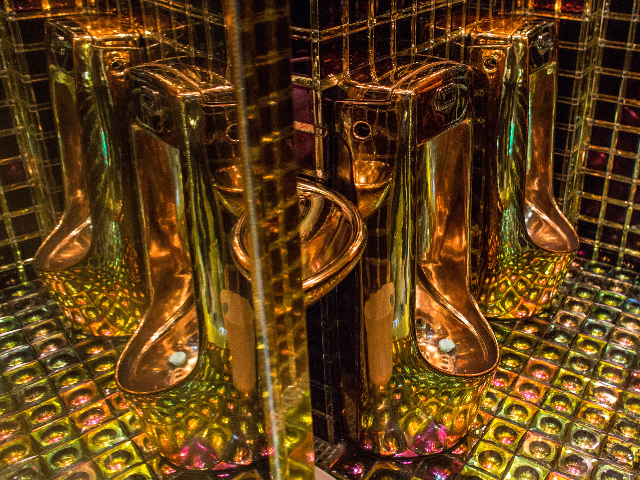In Sihanoukville, a Chinese-funded gambling enclave in Cambodia, Chinese Communist Party (CCP) propaganda has convinced expatriates that their investments in the local casino culture – on a double-hold amid recent Chinese coronavirus travel restrictions and an online gambling ban at the end of last year – will bounce back, Reuters revealed on Monday.
Chinese casino owner Kang Qiang feels so confident in Sihanoukville’s future beyond the pandemic that he told Reuters he proudly installed gold urinals in his casino recently as quirky harbingers of China’s economic resilience in the coming months.
Kang, along with other Chinese expatriate investors like him, is betting on the return of money from China to finish transforming Sihanoukville from a remote coastal town into an exclusive casino and beach resort.
Cambodia is a partner in China’s Belt and Road Initiative (BRI), which aims to consolidate and strengthen China’s global trade power through strategic infrastructure projects planted in host nations. China has invested billions of dollars in Sihanoukville in recent years as part of its BRI. Home to Cambodia’s only deep-water port – and a potentially lucrative highway project linking the port to the mainland – Sihanoukville offers Beijing ample investment opportunity in addition to the casino culture.
As part of these BRI efforts, Beijing has worked to develop offshore oil in Sihanoukville’s deep-water port. Recently, China heralded the development of a similar endeavor in the nearby South China Sea. On March 27, Chinese state media boasted of “world record” natural gas extractions from deposits of methane hydrate in the highly contested waters.
CCP dictator Xi Jinping found an ally in Cambodia’s authoritarian Prime Minister Hun Sen, who eagerly cooperates with the communist nation’s BRI initiatives. The enthusiasm flows both ways, according to Gavin Gao, a Chinese tech entrepreneur living in Sihanoukville who spoke to Reuters about the town’s prospects on Monday.
He claims Sihanoukville was an economic boomtown before the online gambling ban late last year – and the recent Chinese coronavirus travel restrictions more recently – curbed its growth, but he happily awaits its resurgence.
“Sihanoukville is going at China speed … Here is China 2.0!” Gao gleefully exclaimed.
China’s Transport Minister Sun Chanthol offered a similarly positive spin on Sihanoukville’s economic slowdown. “The growth was just phenomenal, too fast! Now things are slowing down so it’s a good opportunity for us to catch up.”
Kang, the casino owner who installed gold urinals recently in an act of hope, also voiced his support of Chinese investment in Sihanoukville. “This city is just starting, there is a lot of potential. I love it. Sihanoukville gives you a feeling of freedom and no control.”
“No control” would be a more realistic description of the situation currently in Sihanoukville. The collapse of a half-constructed, Chinese-owned building last year killed dozens and fueled resentment in the town. Thousands of poor Cambodians have been pushed out of the city as it has become prohibitively expensive, creating a potential future migrant crisis. Rising crime and flooding due to construction add to the town’s woes.
The CCP propaganda regurgitated by Sihanoukville expatriates joins a recent chorus of Chinese braggadocio lauding its “roaring” economy despite the country’s recent international fallout. China has faced criticism from several countries, including the United States, for its responsibility in spawning, spreading, and preventing the curtailment of the Chinese coronavirus pandemic, which continues to ravage the world’s economy and public health.
The Chinese coronavirus, originating in Wuhan, China late last year, was designated a global pandemic on March 11 by the World Health Organization (WHO). At press time Tuesday, the Chinese coronavirus was responsible for 838,061 infections 41,261 deaths worldwide.

COMMENTS
Please let us know if you're having issues with commenting.